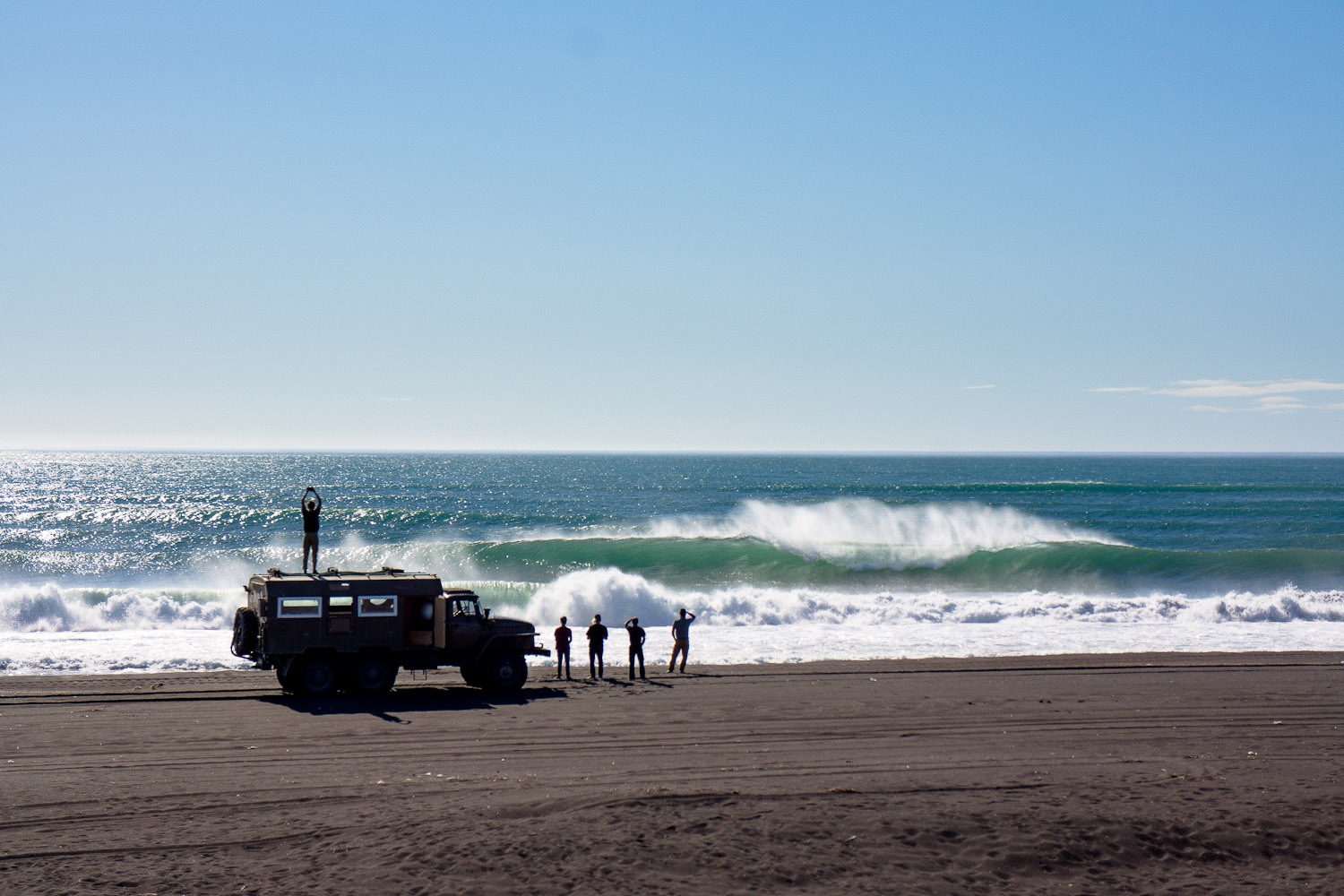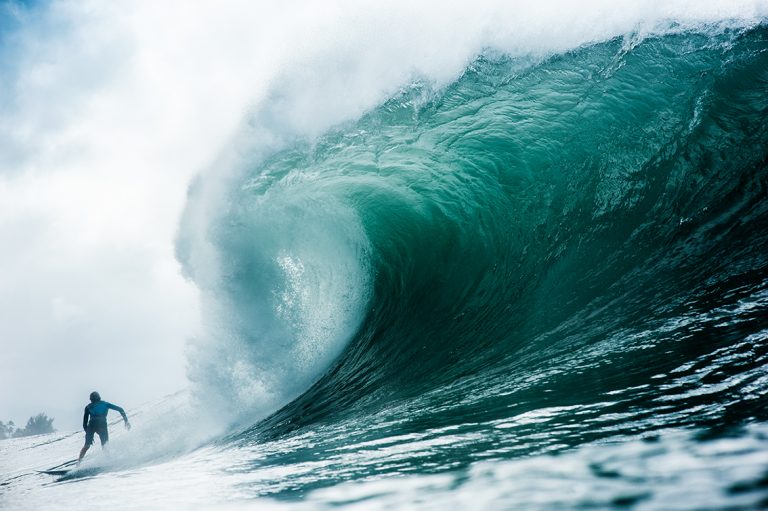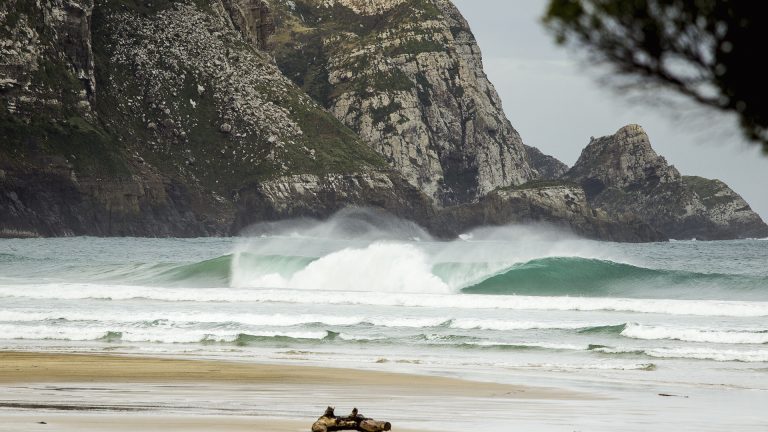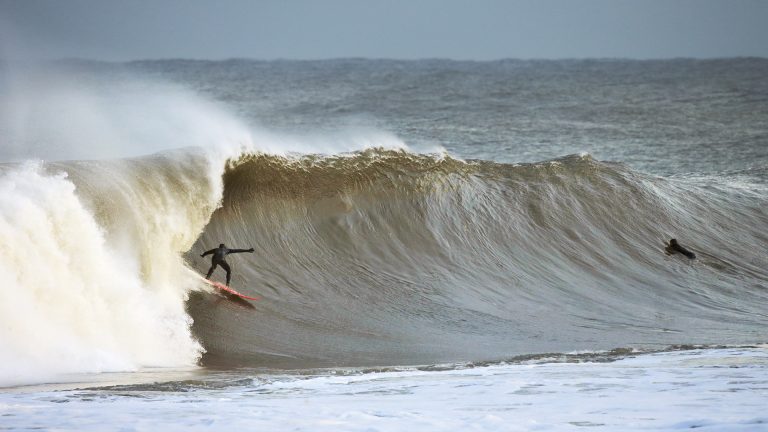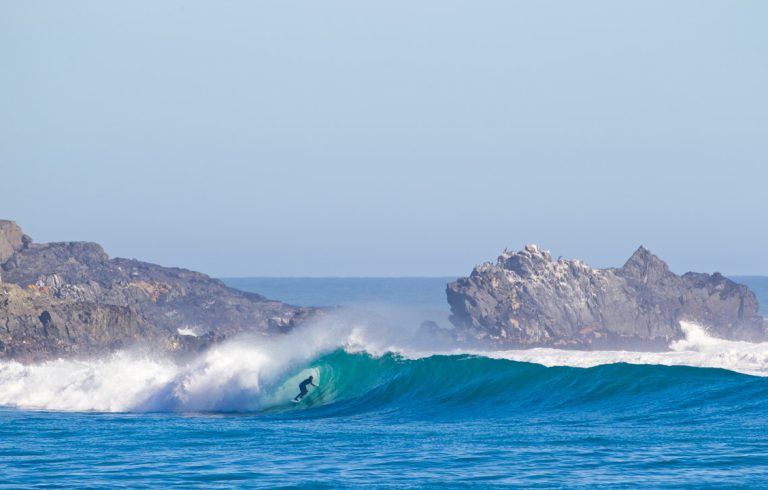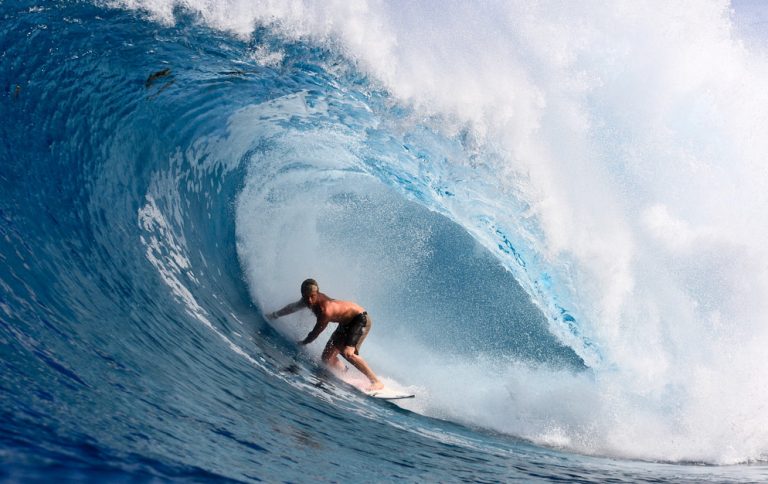Photo: Burkard
by Ben Weiland
A crack came from the top of our truck. The sound was sickening. Someone groaned. No doubt a board had just snapped.
“Press the button! Press it!” Cyrus Sutton shouted over the roar of the engine. We careened down a tortured forest trail at top speed in order to reach the coast before dark. Trees parted and shattered as we plowed through them. In the front cabin Sergei, our mad captain, kept on the gas of this six-wheel military juggernaut. The rest of us were locked away in the back cabin. We could get Sergei’s attention only by pressing a camo-green button on the wall.
The button buzzed him up front and meant stop!, but it couldn’t be reached from any of our seats.
Branches snapped, splintered, stabbed, jabbed, and crunched. Dane Gudauskas lunged forward to press the button and end the beating to our boards on top. But before he could reach it a new branch appeared in the front window, swooping low—a decapitator. We braced for impact.
The branch slammed the top of the truck. The jolt bucked all seven of us from our seats. Bottles and backpacks spun through the cabin like loose particles inside of a space capsule. And then another branch appeared—a baseball bat. It smashed a side window and a million glass splinters sprayed into the cabin. Instantly branches sprung into the opening. Trevor shielded himself with both arms. Meanwhile Dane was back on his feet. He leapt forward and struck the button. Instantly the truck halted. Dust settled. We climbed out to inspect the damage. Punctures, slices, and gashes marked our board bags. The beating had broken the nose off one of Dane’s boards. Trevor Gordon marveled at the jagged glass around the edge of the window. Sergei jumped down from the front cab. “Don’t worry,” he said with a cool grin. “We’re almost to the coast.”
It hadn’t been easy getting around. Over the last five hours our truck had climbed a mountain pass, traversed between volcanoes, dropped into a valley, used a creek as a road, and tore a tunnel through forest in order to reach the sea. No one knew what kind of waves we would find. The stretch of coast was uncharted by surfers. But our lack of knowledge of the setups wasn’t the only thing that concerned us. It was nearly impossible to get to them.
The Kamchatka Peninsula is part of Russia’s Far East. The region is a neighbor to Siberia—but more remote, with worse weather, and with more bears. It straddles a crack in the earth’s surface called the Ring of Fire and houses the planet’s largest collection of active volcanoes. Here, all sorts of pressurized, hot, fowl-smelling stuff creeps to the surface from the depths of the earth. Monstrous purple cones preside over the landscape. Glaciers robe their flanks and smoke steams from their crowns.
Yet despite all its prehistoric geology, we found the peninsula to be a camping utopia. Stereotypes of damp clouds and putrid soups melted away. For days on end the sun awoke blazing red and ascended into beaming blue skies. By mid-morning Kamchatka’s black-sand beaches baked. Hot breezes swept from the mountains and out to sea. According to locals, there hadn’t been a summer this good in years. As for the surf, nobody was on hand to give us a report on how good or bad conditions had been – there wasn’t another surfer within thousand miles.

